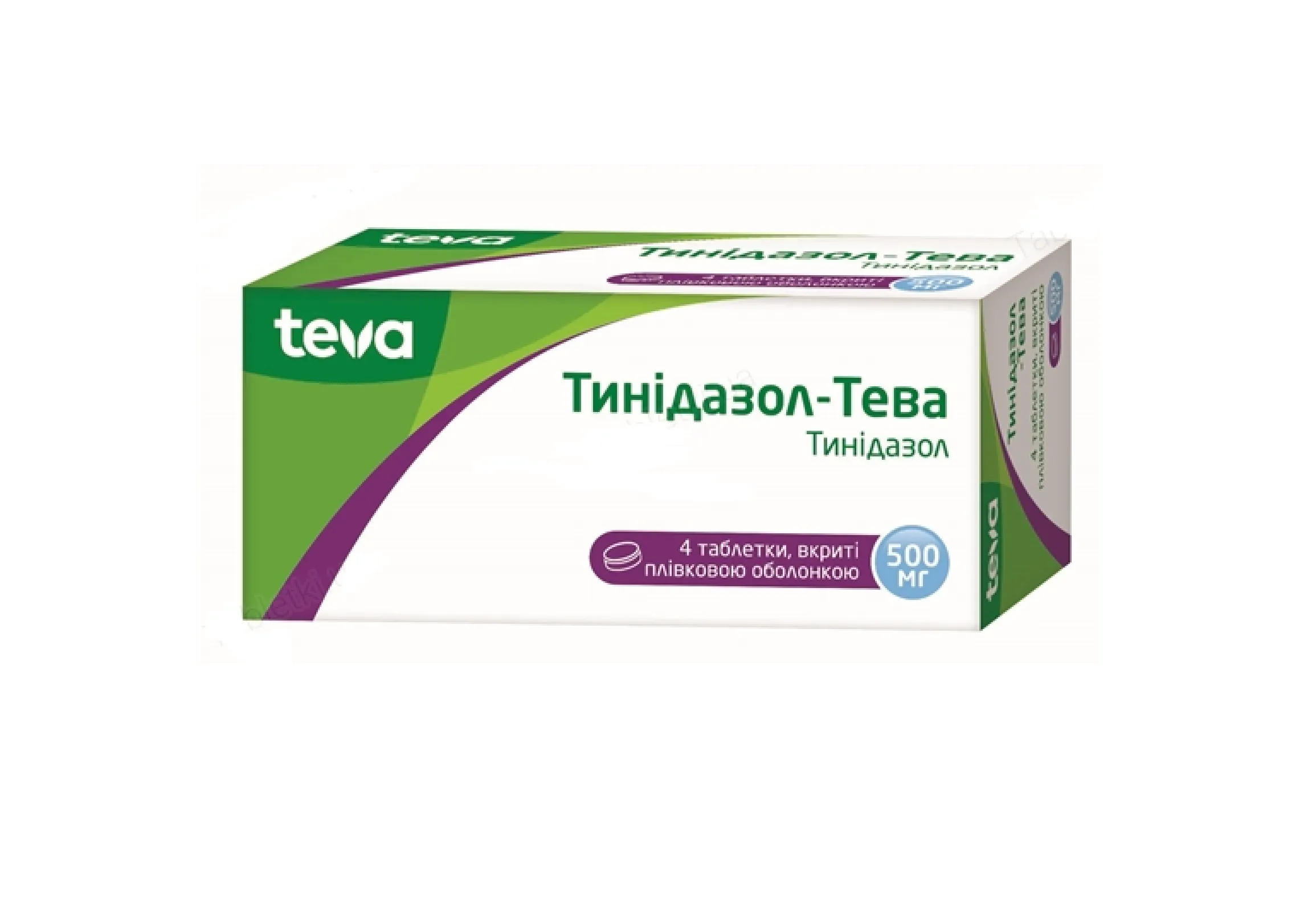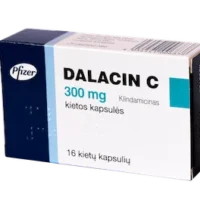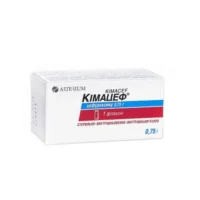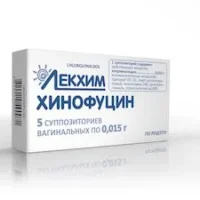Description
Tinidazol-Teva (Tinidazole) Coated Tablets 500 mg. №4
Ingredients
- Active ingredient: Tinidazole 500 mg.
- Other ingredients: Colloidal silicon dioxide, crospovidone, hypromellose, magnesium stearate, microcrystalline cellulose, polyethylene glycol, polyvinyl alcohol, talc, titanium dioxide, and more.
Dosage
Adult dosage: The usual dose is 2 g (four 500 mg tablets) as a single dose.
Indications
Tinidazol-Teva tablets are indicated for the treatment of various infections caused by susceptible strains of bacteria and protozoa. These include trichomoniasis, giardiasis, amebiasis, and certain anaerobic bacterial infections.
Contraindications
Do not use Tinidazol-Teva tablets if you have a known hypersensitivity to tinidazole or other nitroimidazole derivatives. Avoid use in the first trimester of pregnancy and in breastfeeding mothers.
Directions
Take Tinidazol-Teva tablets orally with food to reduce gastrointestinal side effects. Follow the dosage instructions provided by your healthcare provider. Do not crush or chew the tablets.
Scientific Evidence
Tinidazole, the active ingredient in Tinidazol-Teva tablets, is a synthetic antiprotozoal and antibacterial agent. It works by entering the bacterial or protozoal cell and causing damage to their DNA, leading to cell death. Studies have shown tinidazole to be effective in treating various infections, with comparable efficacy to other nitroimidazoles.
Additional Information
- Tinidazol-Teva tablets should be stored at controlled room temperature away from moisture and heat. Keep out of reach of children.
- If you experience any severe side effects or allergic reactions, seek medical help immediately.
Pharmacological studies have demonstrated that tinidazole has a broad spectrum of activity against anaerobic bacteria and protozoa. Its ability to penetrate tissues and reach high concentrations in the genitourinary tract makes it particularly effective in treating infections in these areas.
Clinical trials have shown Tinidazol-Teva tablets to be well-tolerated with a low incidence of adverse effects. Patients have reported quick resolution of symptoms with the use of this medication, making it a preferred choice for various infections.





